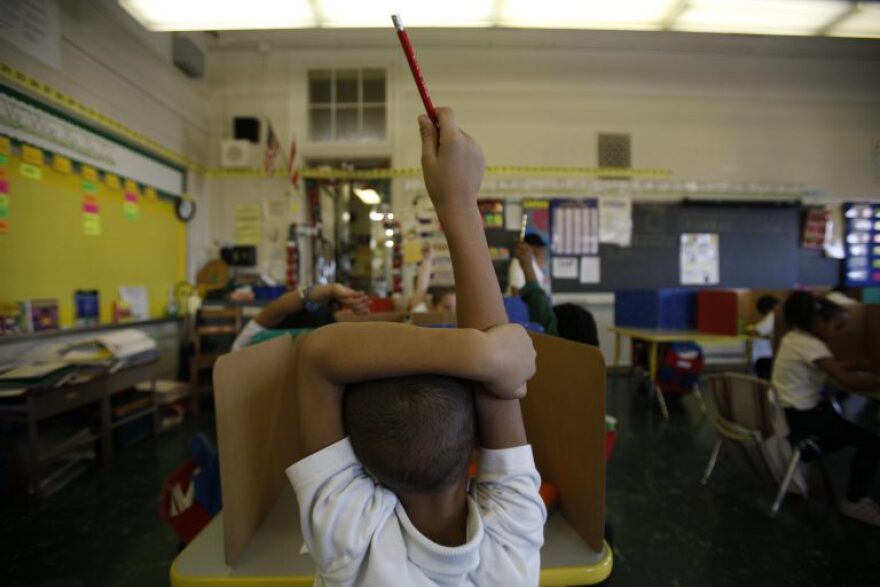- Allentown and Bethlehem Area school districts still wait for Level Up funding
- The money was stripped out of legislation passed by the state Senate
- Lawmakers are still fighting over private school vouchers
BETHLEHEM, Pa. — The new school year has started and students in the Lehigh Valley have headed back to school, but an extended battle over school choice has left lawmakers months behind on finishing the state education budget.
Allentown and Bethlehem Area school districts are just two out of the 100 poorest districts in the state still waiting for Level Up funding, supplemental money that goes to districts with the fewest resources. They are the only ones in the Lehigh Valley that qualify for the Level Up program.
The $100 million in Level Up funding for this fiscal year was included in the $45.5 billion budget bill Gov. Josh Shapiro signed early last month after a month-long budget impasse. Recently the Senate passed a $1.1 billion fiscal code that removed House priorities like Level Up. It also approved a bill that added back $100 million in private school vouchers after the Shapiro line-item vetoed them to win support from House Democrats to pass the budget.
House Education Committee Chair Peter Schweyer, D-Lehigh, said the fiscal code, which directs how money in the budget is spent, showed the Senate was playing politics instead of negotiating in good faith.
“The code wasn’t a serious attempt at governing by the Senate majority,” he said. “As far as I'm concerned, they wasted everybody's time by being up there.”
Budget talks turned contentious in June when Shapiro initially agreed to create the private school scholarship program with Senate Republicans and then switched his support to House Democrats who opposed the vouchers.
The two chambers in the Pennsylvania General Assembly, the House controlled by Democrats and the Senate controlled by Republicans, are still fighting about vouchers. The House Democrats recently lost a one-seat majority, but is expected to regain it in a Sept. 19th special election.
“As far as I'm concerned, they wasted everybody's time by being up there.”State House Education Committee Chair Peter Schweyer
"There are real concerns about the approach to Level Up funding, however, provided we reconcile our disagreements with the House over the PASS program, we are willing to further discuss Level Up," Senate Majority Leader Joe Pittman said in an emailed statement.
The school choice legislation, the Pennsylvania Award for Student Success Scholarship Fund, would allow some students in the state's poorest school districts to attend private schools.
Schweyer said taking out money for poor school districts and adding money for private school scholarships is counterproductive and harmful.
“They're absolutely trying to leverage [Level Up],” he said. “And it's remarkable because every senator has at least one Level Up school district in their districts. They're always the most at-risk. They're always the ones that need the help the absolute most. It is baffling that they're willing to do this."
Pittman also said in his statement that the House should return to Harrisburg to take action on the fiscal code legislation.
Bethlehem Schools Superintendent Jack Silva said last month the district expected to receive about $1.85 million in Level Up and mental health funding. Allentown is currently calculated to get about $6.2 million in Level Up dollars.
Pennsylvania Secretary of Education Khalid Mumin said he was not concerned that lawmakers had not approved Level Up funding despite the new school year already in progress.
“I'm very hopeful and optimistic because the first step was completed,” he said. “You had to move the budget to the governor's desk for signing. That happened. Now, this is the fiscal code. So this is a normal exercise of collaboration, and they'll come together on it. And I'm very hopeful of that.”
The Senate is scheduled to return into session on Monday, Sept. 18th. The House plans to return on Tuesday, Sept. 26th.


